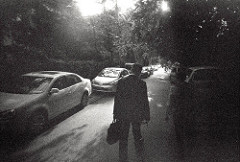 It’s a tragic fact that people we all know—friends, coworkers, employees, spouses, kids—will suffer from addiction at some point during their lives. Unless they do something about it first.
It’s a tragic fact that people we all know—friends, coworkers, employees, spouses, kids—will suffer from addiction at some point during their lives. Unless they do something about it first.
But, sadly, about 90% of those who are in danger don’t get help for their problem. If they do, it’s normally after they have crashed, and they must then go through extended recovery to rebuild their life.
Why don’t people do something sooner?
Because they don’t understand the depth of their issue, or they are in denial. If they are aware they have a growing compulsion, they may not know what to do about it. And too many are deeply embarrassed—ashamed—about their problem, so they don’t to talk to anyone about it.
They don’t know that prevention can be learned. So they do nothing.
How Prevention Can Be Learned
It’s important to note that prevention can also be taught. Which means that we all have the opportunity to make a positive difference in people’s lives. To turn stigma into opportunity.
It starts by developing an early warning system to detect problems before they reach the crisis stage. And by learning healthy lifestyle behaviors that bring us resilience. Then we can withstand—learn from—the issues we face, rather that using substances to feel better or dull the pain.
Addiction can be prevented, if people focus on Awareness, Education, and Connection:
Awareness: Some people may be slow to connect the dots that something they have been doing for a while has become a compulsive habit. Others are in denial and need a wake-up call to understand the negative consequences they are creating, often over and over.
Education: Others may have begun to realize they have an issue, but they don’t know what to do about it. They need education, and they may be overwhelmed by the clutter of material on the internet. And many have an even bigger hurdle to overcome: shame. They know they have a problem, and it bothers them, but they are missing some key information: we all have issues!
Connection: Most people don’t talk to anyone about their problems. They are leery of joining a support group or seeing a counselor. They need an encouraging voice to urge them to find people to talk to, someone who will meet them where they are and help them take the next right step.
If Only Everyone Knew
 Mike is a successful businessman who is unaware—or in denial—that his drinking has become a problem. Susan realizes her use of pills has moved beyond “pain management” into something more, but she doesn’t know what to do about it. Andy is 17, and his use of recreational drugs has now taken him down a dark path, and he is scared, ashamed, and alone in his struggle.
Mike is a successful businessman who is unaware—or in denial—that his drinking has become a problem. Susan realizes her use of pills has moved beyond “pain management” into something more, but she doesn’t know what to do about it. Andy is 17, and his use of recreational drugs has now taken him down a dark path, and he is scared, ashamed, and alone in his struggle.
Wouldn’t it be great if every adult and teenager knew how to detect the early stages of addiction and understood what they can do to prevent it?
Because we all have issues, and there are negative things we keep doing over and over. But there is hope, and there are things we can do to get better. It’s hard to travel that path alone, however. We normally need the help and encouragement of others.
Prevention can be learned. With awareness, education, and connection, we develop resilience to deal with life well—without substances. And if we know someone in danger, we can help. That “someone” could be your friend, coworker, employee, spouse, or kid. Or it could be you.
Together, we can move toward safety. We can turn addiction from a stigma into an opportunity.
Question: Who do you know—including you—that needs awareness, education, or connection?
Action: Decide that you will play a role to help people understand that prevention can be learned.
Photo by ‘GHAZALEH GHAZANFARI’  Photo by CollegeDegrees360
Photo by CollegeDegrees360  Photo by kevin dooley
Photo by kevin dooley 

